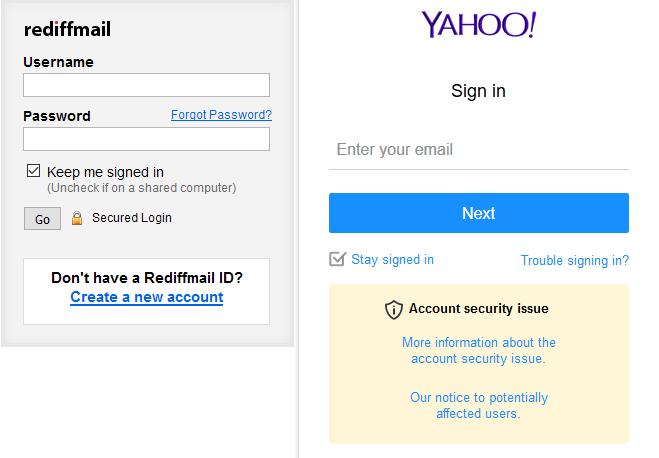
Delhi high court Justice Rajiv Sahai Endlaw has ordered three internet service providers (ISPs) to find out the identities behind 35 email accounts and three IP addresses that had allegedly been used a year ago to send allegedly defamatory emails about a Tata Motors Insurance Broking & Advisory Services chief executive Tarun Samant, as reported Mint and others.
The Tata petition, which was framed as a John Doe order due the unknown number and identity of persons hiding behind the email addresses, was briefly criticised by Endlaw, with him noting in his order that it was “so widely worded” to “restrain everyone from publishing any material or news or statement with respect to the Tata Group controlled by the plaintiff No.1 Tata Sons Limited”.
However, the Tatas, represented by senior counsel SC Agarwal, who was briefed by Anand & Anand managing partner Pravin Anand, acknowledged according to the order that this was not the intention behind their petition, and that they would be happy for an order to be confined to the 35 email addresses and three IP addresses.
After Justice Endlaw having managed only a skim read of the emails attached to the petition (which he said seemed to have made allegations of Samant “not possessing the requisite qualifications” for the job), the judge also raised the issue of why these emails were such a big deal, since they only appeared to have been addressed to officials of the Tata Group. Tatas lawyers replied, according to the order, that the emails had also been sent to “a large number of other employees of Tata Group, as well as to the Prime Ministers of foreign countries where the Tata Group have interest”.
Endlaw nevertheless eventually agreed in his order to issue an interim injunction against the “registrants” (or, conceivably, registrant in the singular) behind those 35 email accounts, restraining them from “making, publishing, distributing, posting, repeating and/or republishing any defamatory / libelous / disparaging material” about Samant and Tata Motors Insurance Broking.
All of those 35 email addresses are hosted on third-party webmail accounts, with the majority coming from rediffmail.com, and several others from yahoo.com and gmail.com (with one of the more noteworthy of the allegedly defamatory email accounts in question being ).
Interestingly, Endlaw also restrained the “registrants” of three IP addresses from making those statements, which could be tough in practice since many IP addresses are dynamic and usually not registered by individuals.
Even more interestingly, Endlaw then ordered three ISPs (Alliance Broadband Services, GC Link and Pyne Cable Systems, which all appear to be Indian broadband / cable internet providers) to “furnish to this Court in a sealed cover the identities of the registrants of the aforesaid email addresses and IP addresses” within 10 days.
Unanswered questions (other than Mistry)
While the order and petition don’t appear have anything to do with the fight between the Tatas and Cyrus Mistry (contrary to two online reports that saw such a link), they are still interesting for their use of the John Doe formula that has more often been used over piracy and the relief granted.
But, this being about the technology field, they also leave some unanswered questions that are similar in sentiment to the rather strangely developing jurisprudence surrounding the whack-a-mole blocking of pro-piracy (and sometimes innocent) websites by Indian courts.
1 Can an ISP even feasibly find out who is behind email addresses hosted by third-party webmail accounts, such as Rediffmail, Gmail or Yahoo? Presumably not, since Yahoo, Gmail and Rediffmail all use https encryption on their websites, which is a technology that is intended to prevent ISPs, for instance, from finding out which username logged into the webmail service.
As it is unlikely that the ISPs will be able to produce any useful identifying information relating to the email addresses, that leaves the IP addresses.
2 But it is not entirely clear from the order (or otherwise) how Tata Sons or their lawyers even got hold of the IP addresses, if all it received were anonymous emails. Gmail and Yahoo certainly mask the originating IP address of a sender in most cases (and, again, one would expect that Rediffmail too did the same thing).
So, either the Tatas managed to get Gmail, Yahoo or Rediff to cough up the account holders’ IP addresses already, or the IP addresses are not necessarily related to the actual persons behind the emails (leaving aside the possibility of someone using a public wireless hotspot or an anonymising service such as Tor to have sent the emails).
3 Finally, without wanting to give credence to the allegations in the emails (since there are a lot of people out there sending unsubstantiated allegations to hundreds of recipients), one ought to ask whether the real identities behind email addresses should be disclosed by an ISP, merely with an interim order by a court that has not yet had a chance to read the actual emails in detail or examine whether they are actually defamatory.
What if, playing devil’s advocate and for argument’s sake, is an actual whistleblower rather than just someone with a personal score to settle with Samant or Tata Motors Insurance Broking?
And what if, instead of a company that is generally considered to be more ethical than most, this interim order was given in favour a less savoury corporate with a history of persecuting whistleblowers?
To Justice Endlaw’s credit, he ordered the ISPs to deliver the documents in sealed cover to the court (and not directly to the Tatas), but as a procedural precedent of how John Does should be used in such cases, it opens up a potentially slippery slope.
And it is yet another example how existing laws, legal processes and even more novel constructs such as John Doe, have a hard time getting to grips with the challenges presented by technology.
threads most popular
thread most upvoted
comment newest
first oldest
first
threads most popular
thread most upvoted
comment newest
first oldest
first